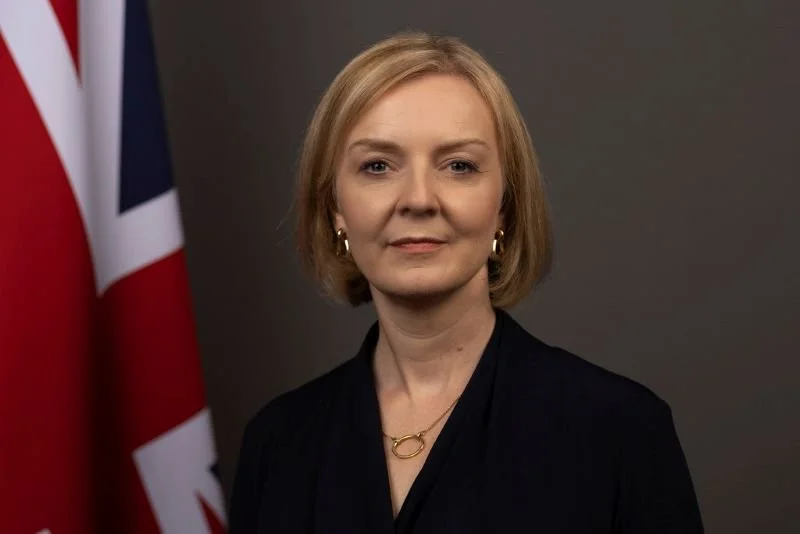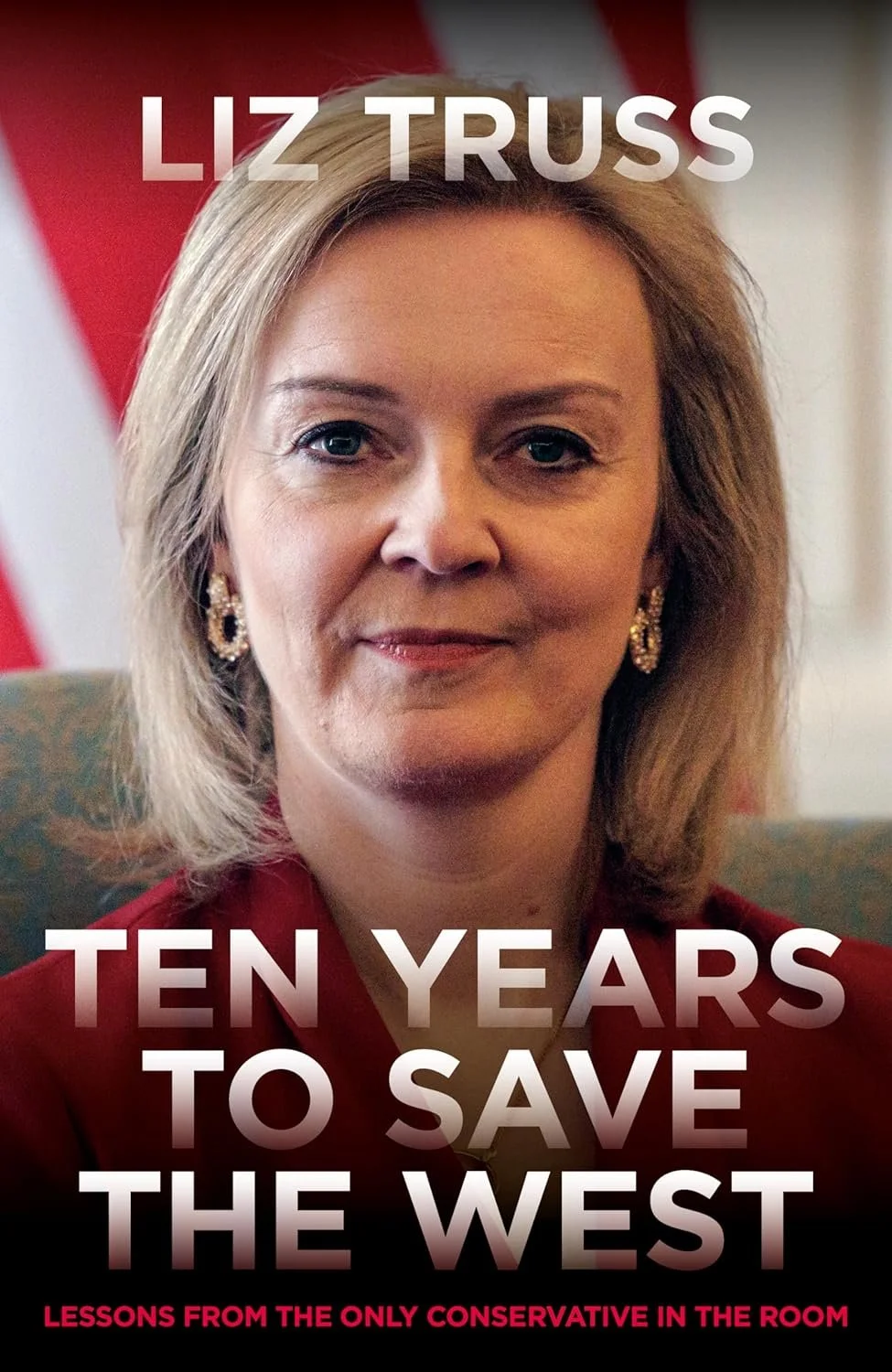UK: "Nobody in the Conservative Party is listening to what Liz Truss is saying"
Former British Prime Minister Liz Truss has made another mediatic come-back with the publication last April of an unusual political memoir, Ten years to save the West, Lessons from the only conservative in the room (Biteback Publishing). She sheds new light on her 10 years in Government, including her very short spell as Prime minister in September-October 2022, and worryingly argues the West is threatened by both authoritarian regimes abroad as well as by various institutional and ideological barriers from within. We asked Dr. David Jeffery, Senior Lecturer in British Politics at the University of Liverpool, to share his views on this account.
Interview conducted on June 9 by Olivier Marty, President of the Cercle franco-britannique
Liz Truss had left the political front stage in late October 2022 after a calamitous experience as Prime minister, which lasted 49 days. In her new book, she argues the British state and establishment have shifted to the Left and the Conservative party has accepted the “status quo”. Is this something she has long believed in? How did she come to this view?
While it is impossible to say what people ‘really’ think, it is clear that Truss has been on somewhat of an ideological journey to the right, inspired by the American right. However, she is not alone in thinking that there has been a broad elite consensus about what constitutes an acceptable range of policies, many of which have their roots in the New Labour era (including the Human Rights Act, the Equalities Act, Bank of England control of interest rates, the need for immigration for economic reasons, the green/Net Zero agenda, devolution to Scotland and Wales, among others). The Conservatives have not been active in pushing back against these reforms, especially since for the first six years (2010-2016) the party was led by liberal conservative David Cameron, and then was forced to concentrate on Brexit.
““Truss has been on somewhat of an ideological journey to the right, inspired by the American right.””
In her book, does Liz Truss have a point in arguing that “quangos,” regulators, and bodies like the Office for Budget Responsibility (OBR) and the Bank of England wield too much power over elected politicians and are politically unaccountable, often reflecting left-wing ideologies?
Yes, certainly. However, they have too much power because consecutive Conservative governments have failed to rein them in, and in some cases have continued to create more of them. This has been a political choice. There are numerous ways that Conservative governments could have challenged this so-called “quango state”, but failed to do so, including branch-and-root reform of the terms of references of these organisations, a much greater interest in who is leading them, and mandating that all “quangos” and government-funded organisations should align with the government’s stated policy aims, and certainly not lobby against them. Furthermore, these “quangos” are not often doing their job correctly. The Office for Budget Responsibility was established to provide independent economic forecasts and independent analysis of the public finances and yet its forecasts are often wide off the mark, which has real-world consequences on the types of policies deemed ‘acceptable’ by the political class.
In your opinion, what were the main mistakes Liz Truss and Kwasi Kwarteng made in designing and presenting the “mini-budget” in September 2022? What key factors turned their plan from a leadership campaign promise into an embryonic financial crisis?
The main issue with the Truss budget was the massive unfunded tax cuts – in that sense, the budget was more “Reaganite” than it was “Thatcherite” – alongside the energy bill support with no roadmap for paying the borrowed money back, and no end point in sight for the policy. This would have cost between £60bn and £100bn.
One way she could have reassured markets was to announce a small surcharge on the price of energy – around 0.1p per kwh on all electricity – to kick in when the prices drop below a certain level, and runs until the debt is repaid. This would have shown markets that Truss was serious about not increasing borrowing in the long term.
What she could also have done was to save the tax cuts for the next budget – in consultation with think tanks and officials – and instead engage in the much harder (but more fruitful) work of supply-side reform, including planning simplification. This would have done two things: firstly, it would have shown her government was serious about tackling the issues that face the country, and secondly it would have also boosted economic growth which meant that tax cuts became more affordable. Finally, Truss should have consulted among her cabinet colleagues, and the parliamentary party, more widely to ‘stress-test’ the policies. However, her closed approach of trusting just a small core of her government and advisors, worked against her.
How might the confrontation between pro-growth, deregulating, nation-state-centric conservative thinking and the trade-skeptic, environmentalist, “inclusive,” and pro-immigration agendas evolve in the UK over the medium term?
This will increase when the Conservatives are in opposition and the Labour government introduces a range of more ‘progressive’ measures. The next Conservative leader will be of the right, but who can bring the competence and seriousness that Truss and Sunak both lack. The Conservatives will look at Reform UK’s polling and want to win some of those voters back.
““Nobody in the Conservative Party is listening to what Truss is saying – her reputation is tarnished.””
The Conservative party has just weathered a resounding defeat in local elections a fortnight ago against the backdrop of deep and lasting divisions, from which Liz Truss obviously suffered, and the wearing away of its credibility in power. Can Liz Truss’s solemn message have any lasting echo in the Party after a probable defeat in the next general elections later this year?
Nobody in the Conservative Party is listening to what Truss is saying – her reputation is tarnished and her post-premiership behavior (and some of the people she has associated with since) has not endeared her to her colleagues. The next Conservative leader would be better taking advice from those seeking to encourage a return to Boris Johnson’s “levelling up” agenda and working with organisations like “Britain Remade”, rather than American right-wing libertarian movements.






